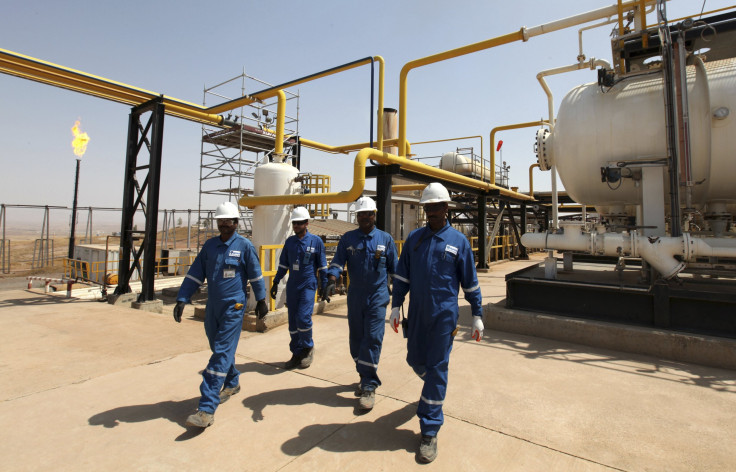Kurdish Oil: Genel Energy Says It Found Two Gas Reservoirs That Will Bring Loads Of Cash To Northern Iraq

The head of Genel Energy, one of the largest oil and gas companies operating in northern Iraq, said his company has discovered two gas reservoirs in the region with a potential volume of 12 to 20 trillion cubic meters -- about half the size of Azerbaijan's largest gas field, Shah-Deniz. Tony Hayward, who was the chief executive of oil at British Petroleum during the Deep Water Horizon spill, said the Kurdish gas will be carried to the Turkish market by 2025.
“This makes really big money for the KRG," Hayward told Turkey's Hurriyet Daily News. Hayward's remarks come one week after his company signed a gas development deal with the Kurdish Regional Government (KRG).
The KRG still owes Genel Energy about $150 million for its oil exports at the end of September. Earlier this month, the KRG announced that production surged and that it would be able to make payments to exporters in the near future.
Over the last several weeks, the Kurdish government has taken steps to legitimize its oil exports.
Baghdad and the KRG reached an accord last week that eased tensions over oil exports and budget payments. The central government in Iraq transferred to the autonomous region of Iraqi Kurdistan $500 million, paving the way for the possibility of a lasting settlement and inter-governmental cooperation to fight the Islamic State group.
For the past six months Iraqi Kurdistan has been exporting oil via a pipeline that runs through Turkey to the Mediterranean port of Ceyhan, without the consent of the Baghdad government, which is required by law. Iraqi Oil Report wrote that the Kurdistan Regional Government is pumping about 120,000 barrels a day from two fields in the Kirkuk region. Dozens of tankers have picked up some of that oil in Ceyhan. So far, it is not clear if any of those tankers have offloaded oil to buyers.
© Copyright IBTimes 2025. All rights reserved.





















